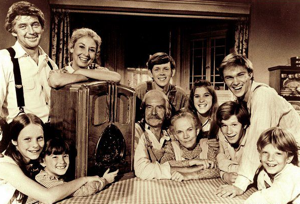
Care Options - Living with your Family
If you are needing a higher level of care, or no longer wish to live in your own home, moving in with your family can be an attractive proposition. There are many potential benefits for you and your family, including the security of knowing a loved one is there 24 hours a day, the chance to spend more time with children and grandchildren and the ability to maintain a level of independence. However, it is important to be realistic about expectations and practicalities, so be sure to discuss all the practical, financial and emotional details with your family before making the decision.
Practicalities
Think about the type of space that will be available to you. Will you need to get upstairs? Will there be room for your wheelchair or walking aid if you need one? Will your family be happy to make alterations or adaptations to a bedroom, bathroom or kitchen to ensure that your care needs are met?
If possible, decide on a space which can be yours and yours alone. For many families, having a 'granny flat' or a separate part of the house is the best solution. There are advantages in this because it provides some independence for you whilst at the same time, having your family close. It also means that your family are not disrupted. It may be possible to sell your current home to pay for a conversion to your family’s home, although there could be a fair amount of stress involved with selling your home and converting another, so again, this option needs a good deal of thought. If you do opt for a self contained annexe or a conversion, confirm the cost of heating, lighting, council tax etc – will this be billed separately or will it be part of your family’s bill?
If you are not able to live in a separate annexe, ensure that you at least have your own bedroom and a space for your books and belongings. It is important that you feel comfortable in your own space and that your privacy is respected. Try to arrange for your own telephone line and if you use one, your own computer line. Keep a television in your room, so you can watch the programmes you choose, when you want.
Do you have any special dietary requirements? Will you be eating each meal with the family or would you prefer to eat separately, at a time of your choosing? Who will cook? Who will do the food shopping?
Finances
It is vital to draw up an agreement, even though you and your family may be close, as it protects everyone and outlines expectations before you move in. Will you pay rent and a percentage of the bills? If you are investing financially in the family house, how will this affect any future funding of care (often means tested)? What happens if you and a family member argue or your son/daughter split up with their spouse? Get legal advice separately from your family and draw up a contract which everyone is happy to sign.
Family Considerations
There will be the need for a lot of adjustment by you and your family when you move into their house, or a house which you are buying together. Are all the family members happy with the arrangement? Are the children having to give up a bedroom or adult give up an office? Will the family be happy to provide your care, or equally to support your independence (some family members can care too much, leading to a situation where you could become prematurely dependent)?
Investigate opportunities for respite care, to give your family a break, and for activities for the elderly such as day centres and support groups. Try to maintain your own interests and your own social life wherever possible.
Living with your family may be the perfect solution but be sure that it is what you and your family really want, and check all other options available to you before making your final decision.
Written for yourcarehome - author: Mark Sadler
Related Advice Articles - Care Options
Care Options - Respite Care
If you or your carer feels in need of a break, respite care can be a good option. Respite care is a temporary stay in a ... More
4 April 2013
Care Options - Retirement Villages
What is a Retirement Village? Retirement Villages, also known as retirement communities or care villages are relatively new to the UK but are growing quickly, offering a ... More
4 April 2013
Care Options - Sheltered Housing
What is Sheltered Housing? Sheltered Housing, also known as Retirement Housing or Warden-Assisted Housing is a term used to describe housing intended specifically for older people. The ... More
4 April 2013
Care Options - Extra Care Housing
What is Extra Care Housing? Extra Care Housing is similar to Sheltered Housing in that is consists of a scheme of flats or small bungalows in one ... More
4 April 2013